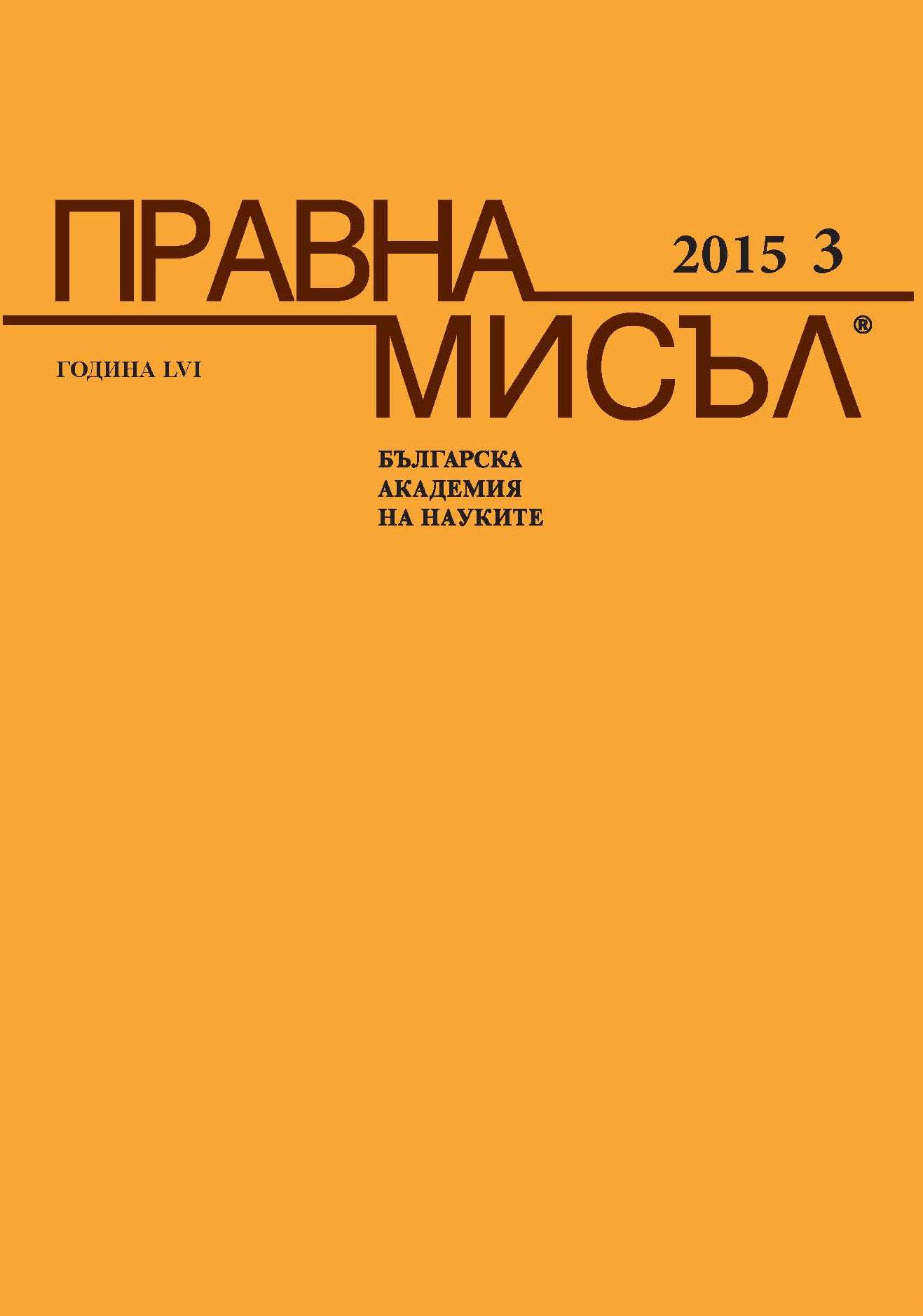
We kindly inform you that, as long as the subject affiliation of our 300.000+ articles is in progress, you might get unsufficient or no results on your third level or second level search. In this case, please broaden your search criteria.

The article analyses the cross-border consequences of an insolvency procedure. It is focused mainly on the legal rules concerning recognition of a foreign authority decision for opening of an insolvency procedure and its consequences on the territory of Bulgarian. Some insufficiency in the legislation arе highlighted with a view to the special features of the cross-border insolvency qualified as a civil case with international elements. Proposals de lege ferenda are made in the light of the UNCITRAL Model Law on Cross-Border Insolvency.
More...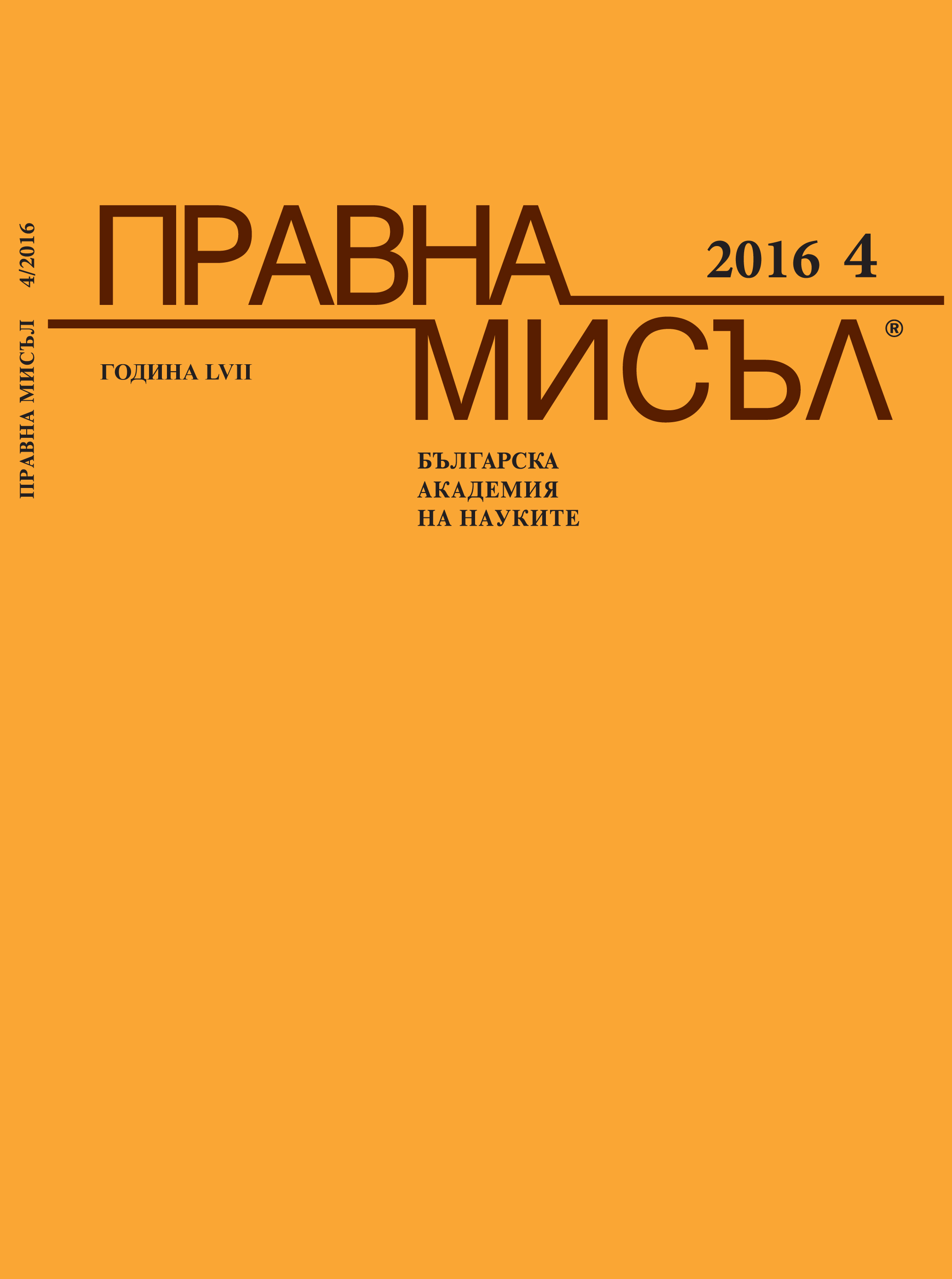
This article aims to explore the practice of the European Court of Justice on the interpretation of Directive 2005/29/EC concerning unfair business-to-consumer commercial practices in the internal market. In the eight years of application of the Directive CJEU 18 preliminary rulings from ten Member States have been initiated and completed. The article analyzes the types of questions made by different Member States.
More...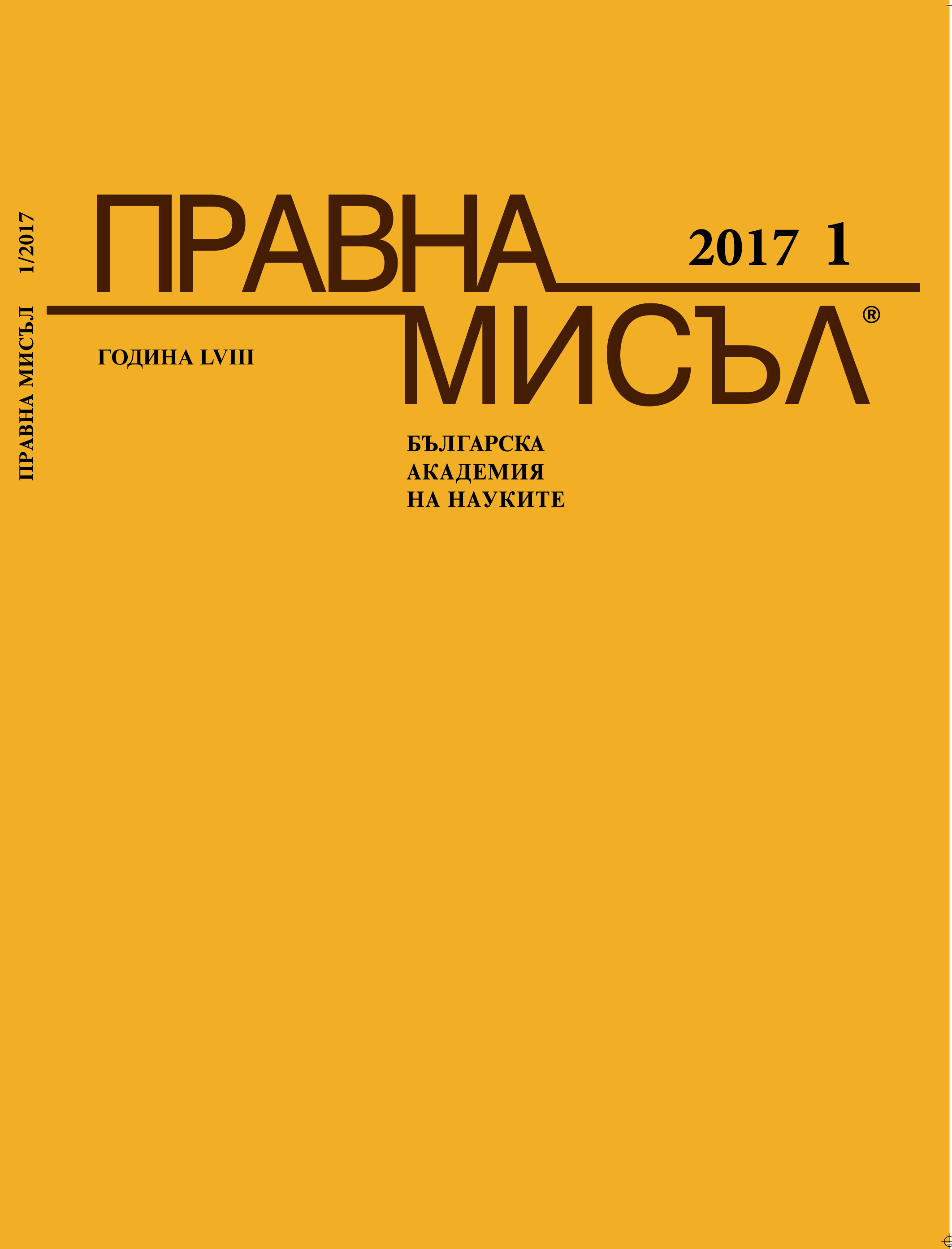
The purpose of this paper is to examine the concept of property in a broader context than traditionally perceived in the Bulgarian Property Law literature. Constitutional and European dimensions have so far remained in the background, but in the modern world property is defended not only by civil law means, but is regarded as a problem in constitutional and European law practice of different courts. This global view may introduce the corresponding changes in the perception of this law and shaping its content; the big issue of human rights enters more noticeably in traditional domestic branches and affects more private law institutes. The analysis will help expand the horizon in terms of Property Law, as well as the moving away from the notion that it is subject to regulation primarily by domestic civil law.
More...
The EU Council Presidency is one of the most important and substantial functions for each Member State by virtue of its appurtenance to the Union. It is an essential element of the legislative process in the EU, whereby, within a specified period of time, a Member State plays a role bigger than the other, and this process is spearheaded, coordinated and guided by its national administration. This article aims to present some issues, opportunities and challenges related to the preparation of Bulgaria for chairing the Council of the EU during the period January 1st – June 30th 2018, taking into consideration the decision of the United Kingdom to proceed to withdraw from the Union in accordance with the outcome of the EU membership Referendum of June 26th, 2016. The article systematically analyses the essential features of the EU Council Presidency, its basic functions, agenda and priorities, highlighting the leading role of the "Troika" in the whole process. Also analysed are the characteristics of the parliamentary dimension of the Presidency of the Council. Special attention is paid to the different risks and challenges both of internal or international nature facing the Bulgarian Presidency, including the forthcoming Brexit negotiation, expected to begin and to conclude during the mandate of the “Troika” of Estonia, Bulgaria and Austria.
More...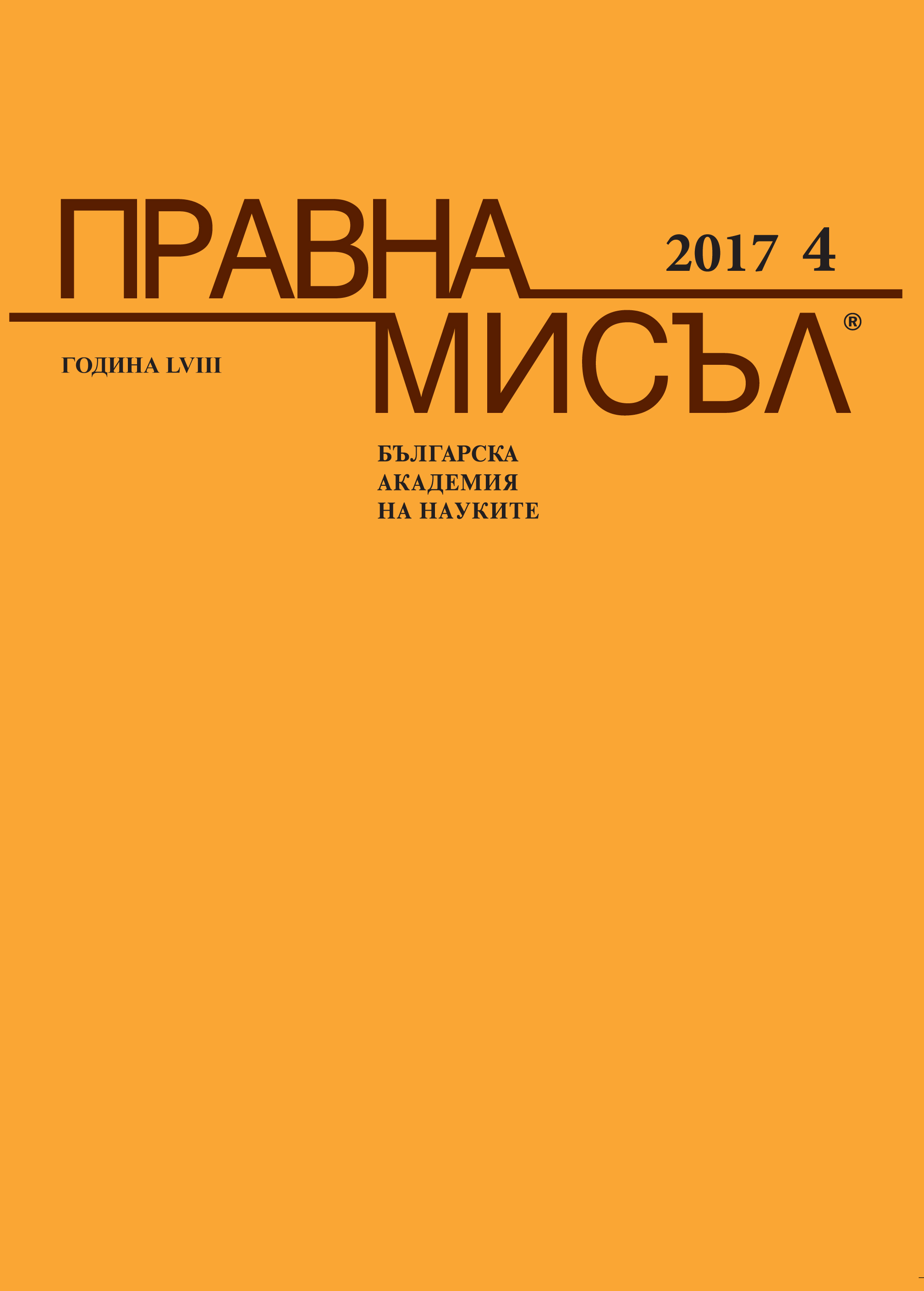
Ensuring the smooth functioning of the European Union's internal market is one of the most important objectives set out in the Treaties. In this direction, however, efforts at Union level alone are not enough to achieve it. Member States also play their role, which, among other things, takes the form of a duty of sincere cooperation with the Union, enshrined in Article 4 (3) of the TEU. One of its applications is in relation with Article 101 (1) TFEU which covers the anticompetitive behavior of undertakings. On the basis of these provisions, the Court of Justice of the EU has established case law – state action doctrine, under which Member States are obliged to refrain from introducing or maintaining in their national law anticompetitive agreements between undertakings or decisions by associations of undertakings which may deprive the rules of competition in the EU from their effectiveness.
More...
On 16 February 2019 Regulation (EU) 2016/1191 of the European Parliament and of the Council of 6 July 2016 on promoting the free movement of citizens by simplifying the requirements for presenting certain public documents in the European Union and amending Regulation (EU) No 1024/2012 will become applicable. The Regulation aims to assure the free circulation of certain official documents in accordance with the principle of mutual trust and in order to promote the free movement of persons within the European Union. The Regulation steps back from the wide proposed scope of the project as set in the Green Paper and the Proposal for Regulation of European Commission. It is not envisaged to really insert the method of recognition of civil status of natural persons in the machinery of European Private International Law, thus leaving it open to the discretion of European Court of Justice to rule out in future cases of discontinuity of personal relationships of European citizens.
More...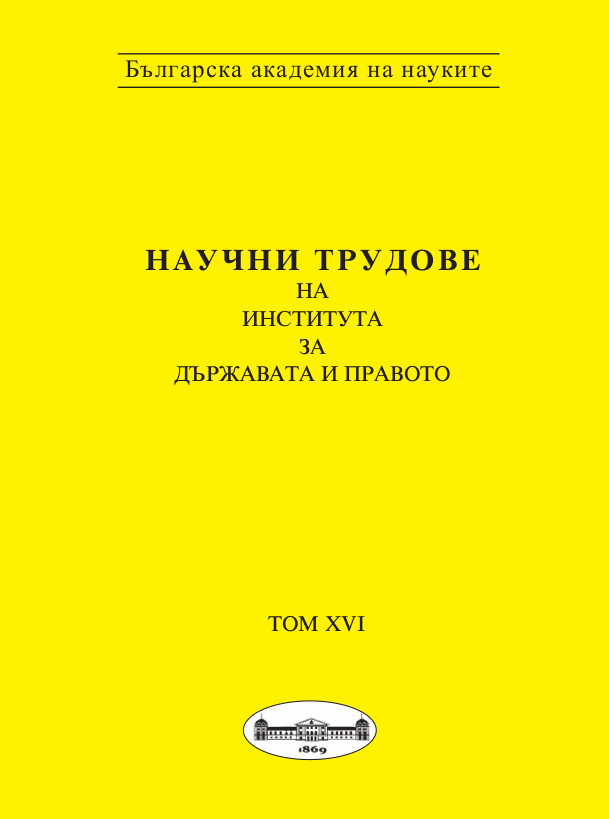
The article is dedicated to the problem of the bulgarian presidency of the EU council in the context of its social efficiency. The concept of EU Council presidency refers to the assumption by a member of the European Union of the responsibility for the general decisions of the Council of the European Union in all aspects of its work. An empirical legal-sociological study on the topic "Legal Awareness of Law Students on EU Council Presidency" was carried out within the framework of a project carried out by South East University – Law Faculty in Blagoevgrad and Institute for Legal Studies - BAS, in the period when the Republic of Bulgaria took over the Presidency together with Estonia and Austria. The report presents results of the survey.
More...
This article examines what is included in the term “personal data” in accordance with the General Regulation on Personal Data Protection, which is due to enter into force on 25 May 2018. The authors pay attention to the judgment of the Court of Justice of the European Union of 19 October 2016 in case C-582/14 Patrick Breyer v. Germany on whether a dynamic IP address could be personal data as well as the new Network and Information Security Directive.
More...
The report is aimed at presenting the principle of equality and non discrimination in the primary and secondary European union law with focus on the equal pay for equal work of men and women. Concise presentation of the transposition of this matter in the Bulgarian legislation is made, as well some imperfections to be avoided.
More...
This report is considering the european union's equality policies and their implementation in the Republic of Bulgaria.There is made an analysis of the european and Bulgarian strategic documents and normative acts,tracking their actual performance.
More...
One of biggest challenges of Private international law in the contemporary world is its “europeization” witch is dealing with the adoption of a number of mandatory for member states European law acts in this field. In principle the Private international law is characteristic with the complexity of legal regulation, theory and law implementation. However, after the admission of Republic of Bulgaria as a full EU member, the situation became more complicated. The supranational EU law only at first sight seems different, separate and independent of Private international law. Gradually the legal regulation of private relationships with international element moves from the primary EU legislation (contracts of EU creation and contracts of their amendment and supplement) to the secondary EU legislation (regulations, directives, decisions).These acts content norms of new generation. The aim of this paper is to analyze the impact of EU acts on the legal regulation of private relationships with international element and to make some conclusions.
More...
The present contribution deals briefly with the limitations to choice of law regarding contracts localized in one country or intra- European Union (I); the combination of a primary connection with an escape clause in Article 4 (II); the scope of application of Article 6 regarding consumer contracts concluded through the Internet (III) and the problem of applicability of overriding mandatory rules (IV).
More...
The report regards the reasons and principles for the avoidance of double taxation between two states. Taxes are imposed so that all the income and wealth of citizens and entities shall fall under the tax sovereignty of one state. The reason for exercising the fiscal power of the state is the existence of the state itself. This power should to be limited by principles established at the highest constitutional level so as to avoid any iniquity to taxpayers. In the field of the international tax law, these principles are limited territorially and personally so that to ensure the one-off taxation on income and wealth.
More...
The Report contains legal analysis of the sources of legislative competence of the European Union in the field of indirect tax harmonization. It clarifies the specific provisions of sharedcompetence of the Union, as a source of legislative competence and the specific provisions laid down in Article 113 of the Treaty on the Functioning of the European Union.
More...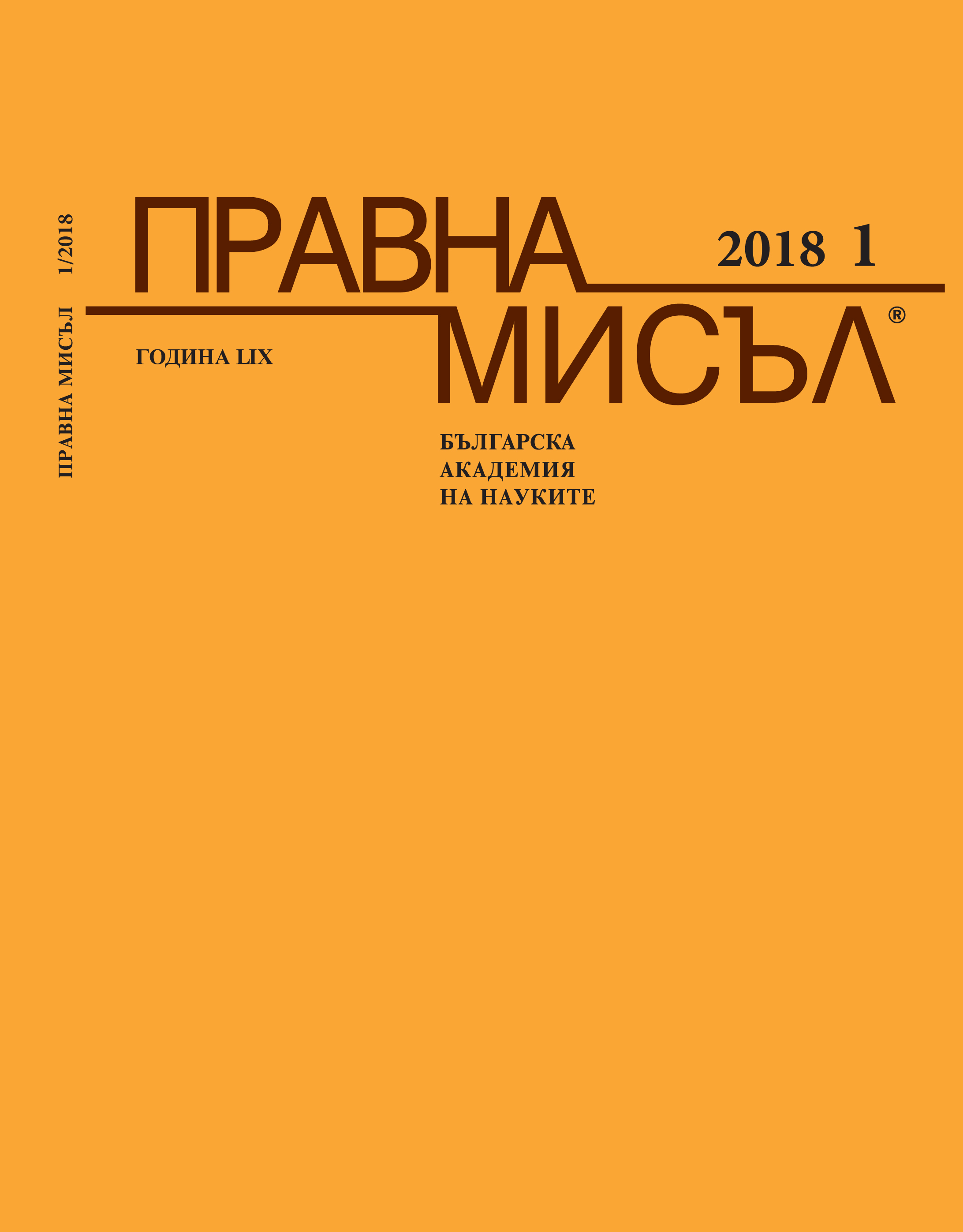
The new Treaty on the Prohibition of Nuclear Weapons as a powerful response by the majority of non-nuclear weapon state to the growing risks posed by nuclear weapons has been analysed. A critical assessment of this legal instrument has been made. The views of nuclear states on the new treaty, which has a major role to play in the international regulation of nuclear disarmament, has also been explored.
More...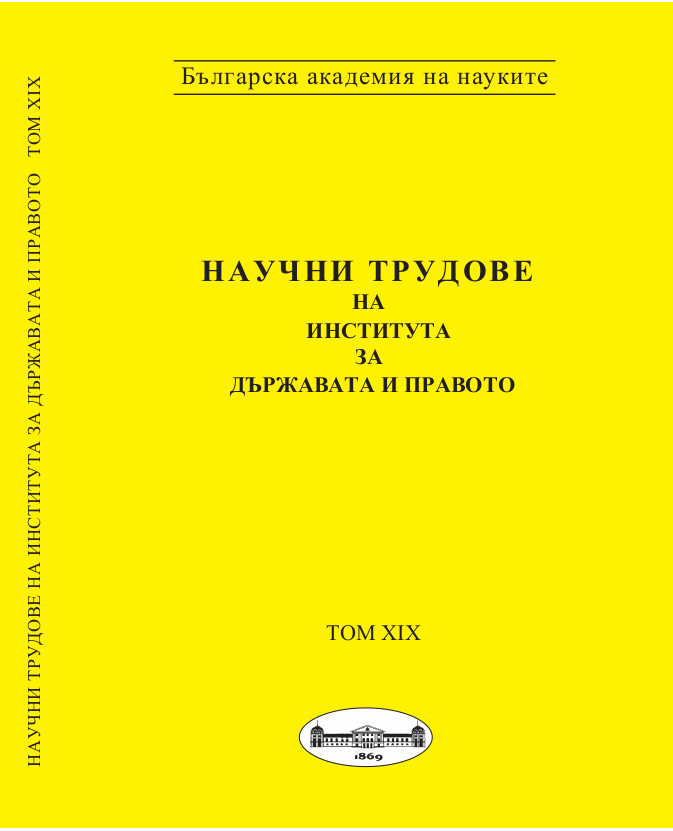
The article considers the crime of genocide under Bulgarian criminal law. The first legal definition of this crime was given in the 1948 Convention on the Prevention and Punishment of the Crime of Genocide. This definition is almost verbatim reproduced in art. 416 of the Bulgarian Penal Code. At the same time, it appears in the statutes of the International Criminal Tribunal for the former Yugoslavia and the International Criminal Tribunal for Rwanda, as well as in the Rome Statute of the International Criminal Court. This allows the jurisprudence of the international criminal courts related to genocide, as well as the doctrine studying the crime under International criminal law, to be integrated and used in the analysis of the crime under art. 416 of the Bulgarian Penal Code.
More...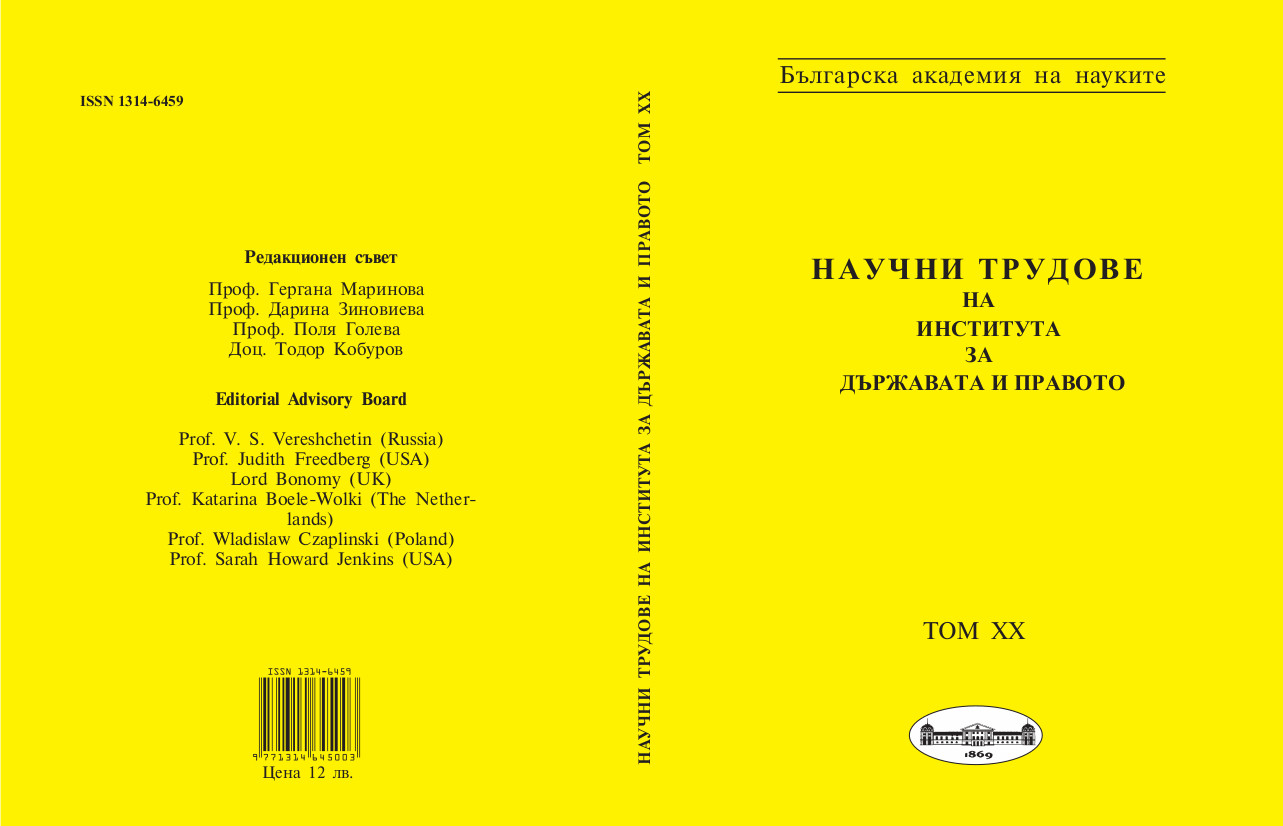
The article considers the crime of genocide under Bulgarian criminal law. The first legal definition of this crime was given in the 1948 Convention on the Prevention and Punishment of the Crime of Genocide. This definition is almost verbatim reproduced in art. 416 of the Bulgarian Penal Code. At the same time, it appears in the statutes of the International Criminal Tribunal for the former Yugoslavia and the International Criminal Tribunal for Rwanda, as well as in the Rome Statute of the International Criminal Court. This allows the jurisprudence of the international criminal courts related to genocide, as well as the doctrine studying the crime under International criminal law, to be integrated and used in the analysis of the crime under art. 416 of the Bulgarian Penal Code.
More...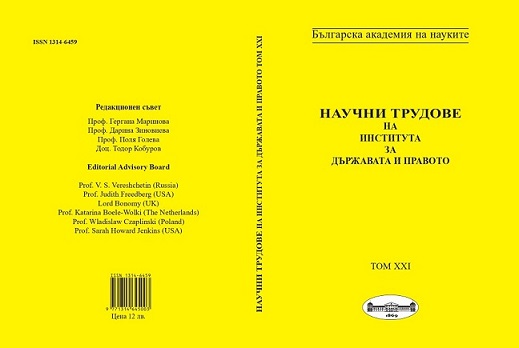
The study analyzes the features of international public administration as a specific object of international administrative law. The procedural protection of international employees is examined through the lens of legal instruments for the protection of human rights. The role of international Administrative Tribunals is studied.
More...